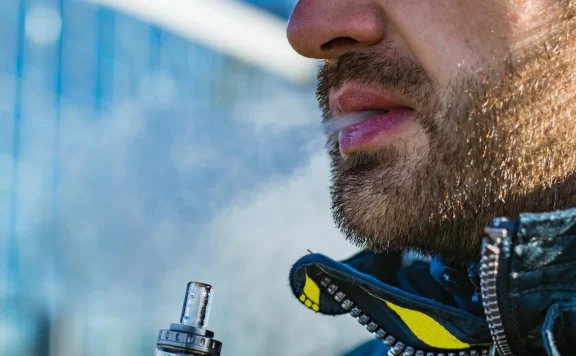Vaping is one of the most popular methods of inhaling marijuana and Nicotine in the world. This is in part because vaping does not produce smoke and therefore many proponents believe it is less harmful to the human body than smoking. However, there have been several studies in recent times that have shown that vaping is equally dangerous to the health of the users. However, most of these studies did not find precise biochemical information on the impact of Vaping on the human body.
This is about to change because a new study conducted by researchers from the Portland state university finds that heating marijuana (Cannabinoid acetates) in a vaping device crates ketene, a known toxic gas. When inhaled this gas can be dangerous to the health of the vaper.
In this study, the researchers focused on finding out the amount of ketene product in a single puff of a vape. They used products with the Delta 8 THC cannabinoid acetate which does not follow the FDA regulations and is popular among marijuana users for its ability to make vapes more potent.
The study found that Ketene in vaping products is formed at lower temperatures than had previously been thought. This means that vaping for longer can result in toxic gas accumulating at dangerous levels.
Kaelas Munger, a doctoral student and one of the researchers is worried that most people who use vaping products take more puffs and this can be dangerous. He says:
“The thing we’re most concerned about is prolonged exposure — we don’t know what that is.”
According to the American Chemical Society, Ketene is a colorless toxic gas that is characterized by a penetrating odor. This gas has been known to cause many serious health complications. According to a study published in the National Academy of Sciences of the United States of America Journal in 2020, Ketene causes acute lung damage in animals.
The study also showed that when aerosolized in an e-cigarette vitamin E acetate reacts to produce keten gas which is highly toxic. Because Ketene is known to be very toxic no studies have been conducted to find out its impact on the human body.
According to Robert Strongin, the leader researcher on the Portland state university’s study, not all cannabis vaping products is dangerous. However, there is a trend in the market where users are seeking to chemical modify their products to make them more potent. This results in the creation of semi-synthetic cannabinoids that can have elevated health risks. He points out that:
” It would be obvious to any responsible chemist that the modification of cannabinoids to their corresponding acetates for vaping will create molecules with a substructure highly similar to that found in vitamin E acetate.”
He further says that Vitamin E acetate is still the main suspect cause of EVALI. He believes that regulators, consumers, and industry players should be made aware of the harm that vitamin E acetate can cause. This is important to make sure that dangerous products and practices are eliminated from the market.







